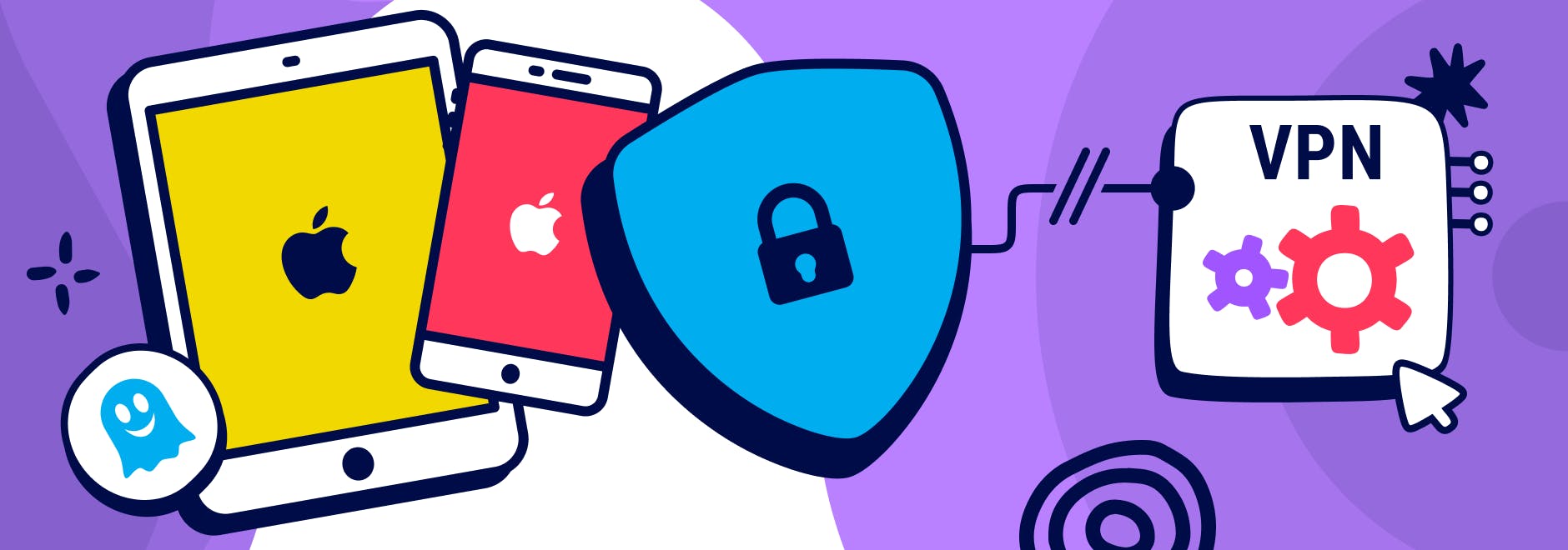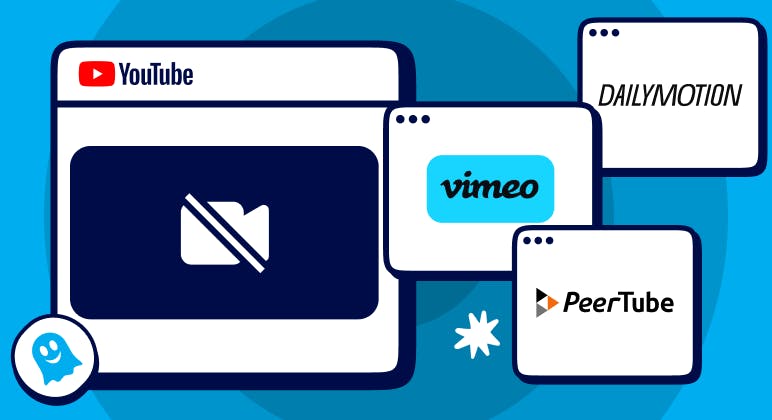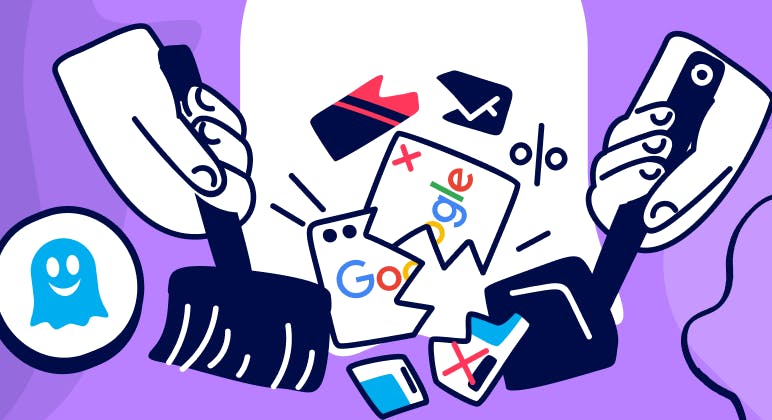Guide
Unveiling the Reality: Why You Don't Need a VPN on Your iPhone
Key Points:
- iPhones have robust built-in privacy features that reduce the need for VPNs.
- iCloud Private Relay provides an alternative to VPNs by encrypting and routing internet traffic through two separate relays, masking IP addresses and preventing tracking.
- Ghostery complements iPhone’s privacy features by blocking trackers and ads, creating a comprehensive privacy solution without the need for a VPN.

The Misconceptions About VPNs on iPhones
Debunking Common VPN Myths for iPhone Users
Sponsored segments on YouTube frequently tout Virtual Private Networks (VPNs) as the ultimate solution for safeguarding online activities. VPNs have long been promoted as an essential tool for protecting privacy and security on the internet.
These services claim to encrypt your data and mask your IP address, making it difficult for third parties to track your online behavior. However, while VPNs can provide an added layer of protection, they are not a foolproof solution and come with their own set of limitations and potential drawbacks.
Many iPhone users are curious about what is VPN on iPhone and whether they should be using one to gain more privacy. Some people fall prey to the misconception that a VPN is an indispensable tool for protecting their privacy. In reality, Apple offers a robust set of built-in privacy features that can effectively secure your data without the need for a third-party VPN.
What is VPN on iPhone?
A VPN is a service that creates a secure, private connection over the internet. VPNs replace your regular IP address and route your traffic through a server in another location, making websites think you are accessing them from that server's location instead of your real one. They also protect your online privacy by hiding your actual location and lets you access websites and content blocked in your region. In short, VPNs route your internet traffic through an encrypted tunnel to a remote server, hiding your online activity from your ISP and other third parties.
VPNs on iOS: A Perceived Necessity
But iPhone VPNs are not always necessary for securing your online activities. While a VPN iPhone setting can be useful in some situations, such as accessing geo-restricted content or securing your connection on public Wi-Fi, it’s not essential for most users. The VPN setting for iPhone can be complex to configure and will probably slow down your internet speed.
One of the primary reasons behind the widespread belief in the necessity of VPNs on iPhones is the assumption that they provide an unparalleled level of security. While VPNs can indeed encrypt your internet traffic and mask your IP address, it’s crucial to understand that iPhones already come equipped with a comprehensive suite of privacy features. Apple’s commitment to user privacy is deeply ingrained in the design and architecture of iOS, making it inherently secure against most common threats.
Overestimation of VPN Benefits in the Apple Ecosystem
Another factor contributing to the overestimation of VPN benefits on iPhones is the lack of awareness about the robustness of Apple’s privacy measures. Many users assume that a VPN is the only way to protect their online activities, without realizing that iPhones already provide a high level of privacy protection out of the box.
From end-to-end encryption for iMessage and FaceTime to the Intelligent Tracking Prevention in Safari, Apple has implemented a range of features that significantly reduce the need for a VPN.
Understanding iPhone’s Built-In Privacy Features
Power of iOS Privacy Controls
iPhones offer a wide array of controls and settings that empower users to manage their data and protect their online activities. From granular app permissions to the ability to control location services, iPhones provide users with a high degree of control over their privacy.
How Apple’s Privacy Measures Reduce the Need for VPNs
One way in which Apple’s privacy measures reduce the need for VPNs is through its robust encryption protocols. iPhones employ advanced encryption techniques to protect data both in transit and at rest. Even if your internet traffic would be intercepted, it would be extremely difficult for anyone to decipher the contents of your communications.
Additionally, features like the App Store’s strict vetting process and the sandboxing of apps further enhance the security of your iPhone, minimizing the risk of malware and data breaches.
iCloud Private Relay: A Strong Alternative to VPNs
With the introduction of iCloud Private Relay, Apple has taken a significant step towards providing users with an even stronger alternative to traditional VPNs.
iCloud Private Relay is a feature that encrypts and routes your internet traffic through two separate relays, effectively masking your IP address and preventing websites from tracking your online activities. This way you can enjoy enhanced privacy without the need for a separate VPN app.
How Private Relay Enhances Your Privacy Without a VPN
iCloud Private Relay works by first sending your internet traffic to an Apple-operated relay, where it is stripped of your IP address and encrypted. The encrypted traffic is then sent to a second relay operated by a third-party content provider, where it is decrypted and forwarded to its final destination.
This two-hop architecture ensures that no single entity, not even Apple, can associate your IP address with your online activities. As a result, you can browse the web with greater privacy and anonymity, without relying on a VPN.
Ghostery’s Role in Enhancing iPhone Privacy
Ghostery: Beyond VPNs for Privacy and Security
While iPhones offer a strong foundation for privacy, there are still areas where additional tools can further enhance your privacy. Instead of relying solely on VPN iPhone settings, consider using a trusted privacy tool like Ghostery.
Ghostery goes beyond what a standard VPN does. Our extension targets and dismantles trackers and ads that a VPN might miss. This targeted approach keeps your online activities private and unmonitored.
Ghostery also has a user-friendly interface that shows you exactly who tries to track you, giving you control over your digital footprint.
Eliminating unwanted ads and trackers not only enhances your privacy but also makes browsing much faster, making Ghostery an essential tool to protect online privacy.
How Ghostery Complements iPhone's Built-In Privacy Features
Ghostery seamlessly integrates with the existing privacy features of your iPhone, complementing and enhancing their effectiveness. Ghostery helps create a comprehensive privacy shield around your online activities by working in tandem with iOS's built-in privacy controls.
Our privacy extension blocks trackers that slip through the cracks of Apple’s privacy measures, ensuring that your data remains secure and your browsing experience remains private — all without the need of accessing VPN iPhone settings.
Ghostery is always on in the browser, unlike intermittent solutions like VPNs or iCloud Private Relay. Ghostery preemptively blocks well-known trackers and ads, ensuring that potentially compromising network requests never leave your device. So, our extension reduces the workload for the VPN or iCloud Private Relay.
This proactive blocking approach efficiently safeguards your data. It also significantly boosts browsing speed, which is crucial in areas with limited connectivity.
Comprehensive Privacy Solution: Ghostery + Private Relay
When combined with iCloud Private Relay, Ghostery forms a powerful privacy duo that eliminates the need for a separate VPN app. You can enjoy a robust and comprehensive privacy solution tailored specifically for your iPhone by leveraging the strengths of both technologies.
Ghostery demonstrates its commitment to your privacy with weekly block list updates. These updates keep your protection current against the ever-evolving landscape of trackers.
Ghostery also has the unique Never-Consent feature that actively communicates your tracking preferences to publishers, legally obligating them to respect your privacy. What's more, Ghostery shields your search history from Google. This keeps your searches private by preventing Google from collecting your data from clicked results.
Our advanced tracking protection and ad-blocking capabilities work seamlessly with iCloud Private Relay's encrypted browsing, creating a formidable barrier against privacy invasions.
The Limitations of VPNs on iPhones
Constraints of VPN Technology on iOS
While VPNs can offer certain benefits, it's important to understand the limitations and constraints of VPN technology on iPhones.
VPNs on iPhones may not provide the same level of functionality and flexibility as they do on other platforms due to the architecture of iOS and the restrictions imposed by Apple. For example, VPNs on iPhones cannot route all network traffic through the VPN tunnel, which means that certain apps and services may still be able to access your real IP address.
Apple has attempted to address VPN data leaks on iOS devices through software updates, however the underlying issues have not been fully resolved.
VPNs Compromise Speed and User Experience
Another potential drawback of using a VPN on your iPhone is the impact it can have on your device's performance and user experience. VPNs often route your internet traffic through remote servers, which can introduce latency and slow down your browsing speed.
This can be particularly noticeable when streaming video content or engaging in online gaming. Some VPN apps may consume significant battery life and system resources, leading to a suboptimal experience.
Privacy Concerns: Not All VPNs Are the Same
You should also consider privacy concerns associated with certain VPN providers. Some may actually compromise your privacy rather than protect it, negating the need to mess with the VPN setting for iPhone.
They may log your online activities, sell your data to third parties, or have inadequate security measures in place. It's essential to thoroughly research and evaluate the trustworthiness of a VPN provider before entrusting them with sensitive information.
Evaluating the Trustworthiness of VPN Providers
There are several factors to consider to ensure that a VPN provider is trustworthy and reliable:
- Look for VPN providers that have a proven track record of protecting user privacy, with clear and transparent privacy policies.
- Opt for providers that adhere to strict no-logging policies, meaning they do not collect or store any information about your online activities.
- Consider the jurisdiction in which the VPN provider operates, as some countries have more privacy-friendly laws than others.
VPNs vs. Built-In Privacy
Evaluating Your Needs: Do You Really Need a VPN?
Understanding what is VPN on iPhone is important for making informed decisions about your device's security settings.
Consider the types of online activities you engage in, the sensitivity of the data you handle, and the level of privacy you desire. In many cases, the built-in privacy features of your iPhone, combined with tools like Ghostery and iCloud Private Relay, may provide sufficient protection for your needs.
Understanding Built-In iOS Features
Take the time to explore the privacy settings in your iPhone's Settings, and familiarize yourself with the various options for managing app permissions, location services, and data sharing. Enabling the VPN iPhone setting can sometimes cause unexpected issues with certain apps or websites.
When Do I Need a VPN?
There are three reasons you would need a VPN:
- Using a VPN masks your true IP address, shielding your online activities from websites and peer-to-peer networks. A VPN also prevents ISPs and mobile carriers from monitoring the sites and IP addresses you visit. Using it also adds an extra layer of privacy and security when you share files online.
- When connected to untrusted networks like public Wi-Fi hotspots at airports, cafes or hotels, a VPN secures your connection against common threats such as man-in-the-middle attacks.
- VPNs can also help bypass geographical restrictions and censorship, enabling access to websites and content that may be blocked in certain regions.
Advantages of Relying on Built-In Privacy Features and Ghostery
Relying on the built-in privacy features of your iPhone and complementary tools like Ghostery offers several advantages over using a VPN. You can enjoy a seamless and integrated privacy experience, without the need for a separate app that may impact performance and battery life. Additionally, by using native iOS features and trusted tools like Ghostery, you can have greater confidence in the security and reliability of your privacy setup.
Why Ghostery and iCloud Private Relay May Be All You Need
For many iPhone users, the combination of Ghostery and iCloud Private Relay may provide all the privacy protection they need. Ghostery's advanced tracking protection and adblocking capabilities work hand in hand with iCloud Private Relay's encrypted browsing to create a robust privacy shield. This powerful duo ensures that your online activities remain private, your data stays secure, and your browsing experience remains free of the potential drawbacks of a VPN.
Enhancing Your iPhone's Privacy Without a VPN
Tips for Maximizing iPhone Privacy Without External Apps
There are several tips you can follow to maximize your iPhone's privacy without relying on external apps like VPNs:
- Regularly review and adjust your privacy settings in the Settings app, ensuring that you're only granting permissions to apps that truly need them.
- Keep your iPhone updated with the latest software updates, as these often include important security patches and privacy enhancements.
- Be mindful of the apps you install and the websites you visit, as some may engage in tracking or data collection practices.
Leveraging iCloud Private Relay and Ghostery for a Comprehensive Privacy Setup
You can create a comprehensive privacy setup that rivals the protection offered by VPNs by leveraging iCloud Private Relay and Ghostery together. iCloud Private Relay encrypts your browsing traffic and masks your IP address, while Ghostery blocks trackers and ads in Safari that may compromise your privacy. This powerful combination ensures that your online activities remain private and secure, without the need for a separate VPN app.
Bottom Line
The notion that a VPN is a necessity for privacy on iPhones is largely a misconception. In most cases, you don’t need to use a VPN on iPhone to protect your privacy. iOS already includes many built-in security features, such as encrypted messaging and secure browsing with Safari.
With the robust built-in privacy features offered by iOS, combined with the advanced protection provided by Ghostery and iCloud Private Relay, iPhone users can enjoy a high level of privacy without the need to tinker with the VPN iPhone settings.
While a VPN iPhone setting can be helpful in specific situations, it's not a one-size-fits-all solution for online privacy.
If you do decide to use a VPN on iPhone, be sure to choose a reputable provider and carefully review their privacy policy. Some free VPNs may actually collect and sell your data, defeating the purpose of using a VPN in the first place.
Have questions? Get in touch. We’re always happy to help.

